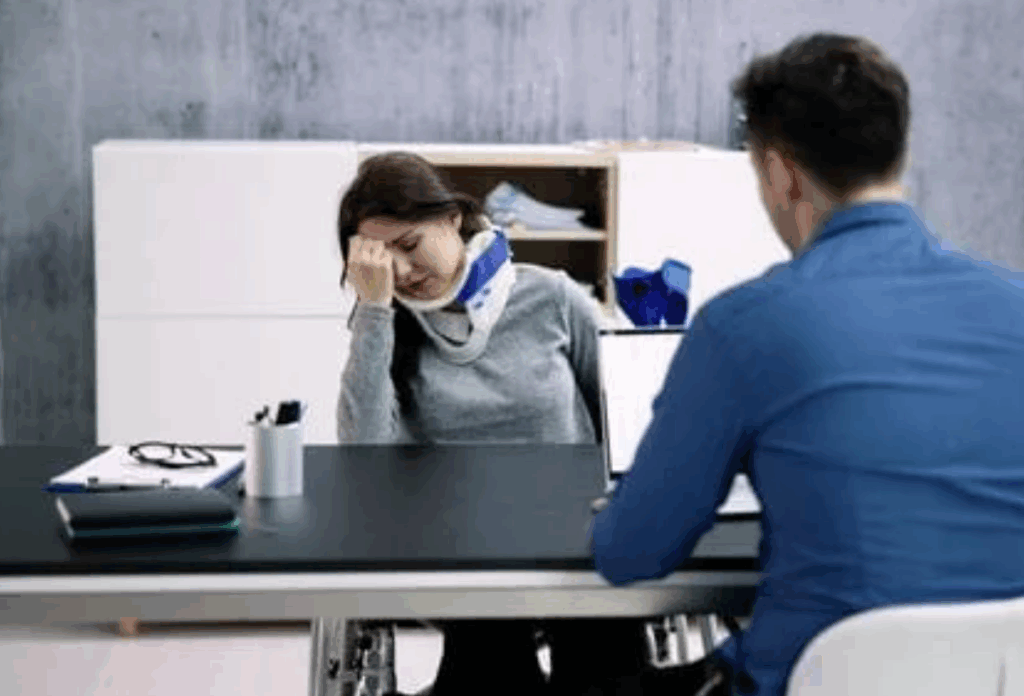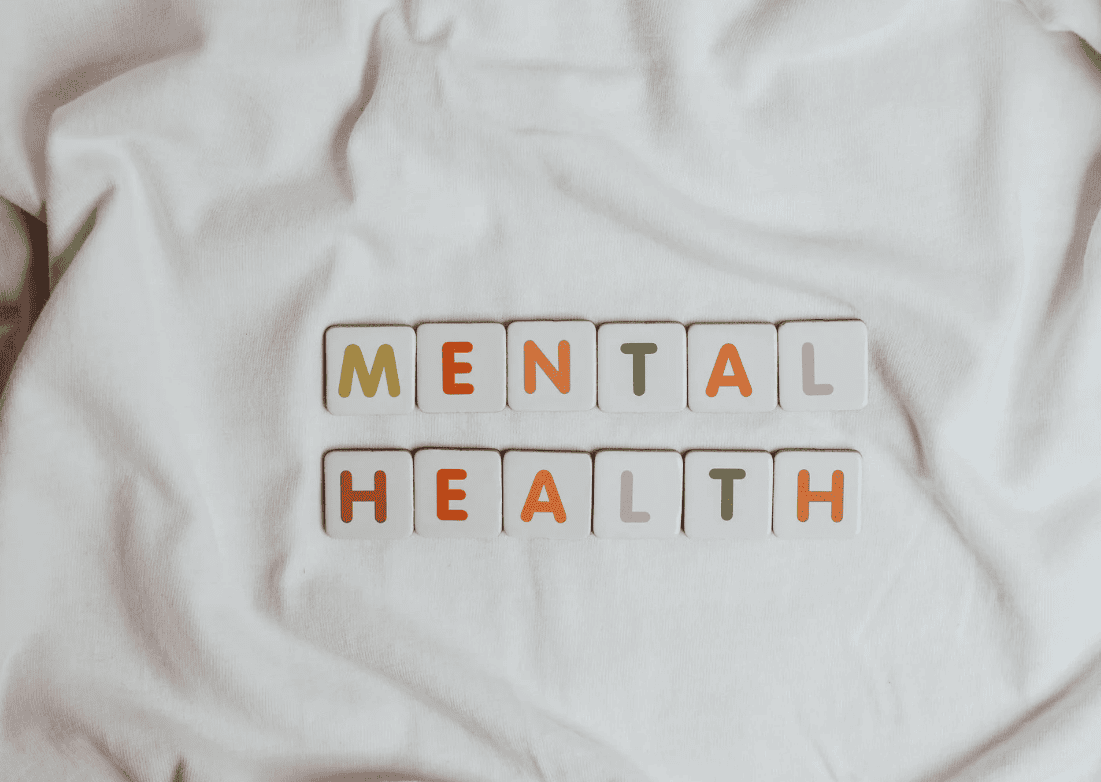Experiencing physical harm during an accident already causes immense suffering. But here’s what most people don’t realize…
Psychological damage from an injury can endure much longer than physical damage. And they’re often way harder to heal.
The fact that one-third of accident victims experience mental health problems one year post-injury demonstrates the severity of this problem. Your mind continues to suffer from psychological effects even after your bones mend and wounds stop bleeding.
Here’s the thing:
A great number of people experience mental health problems after personal injuries yet these issues receive surprisingly little attention. After an accident people prioritize physical recovery but neglect their mental health.
What you’ll discover:
- The Hidden Mental Health Crisis After Accidents
- Why Your Brain Reacts This Way to Trauma
- Warning Signs You Shouldn’t Ignore
- Getting the Right Help When You Need It
- The Financial Reality of Mental Health Treatment\

The Hidden Mental Health Crisis After Accidents
Do you want to hear something that could really surprise you?
The year 2023 saw about 62 million Americans visit medical facilities for injury treatment. That’s roughly one in five people. Around 39.5 million personal injury cases each year need medical care which represents a massive population at risk of developing serious mental health issues.
But here’s where it gets really concerning…
The majority of these individuals suffer from psychological trauma without receiving any assistance. They’ll deal with the physical injuries, sure. But the mental stuff? That gets pushed aside.
And that’s a huge mistake.
Serious injuries plunge you into a completely altered reality. Your normal life continues until a sudden injury leaves you unable to work and perform daily activities that you love while struggling to take care of yourself properly. That’s traumatic. Really traumatic.
Physical injury cases extend beyond just the medical expenses and skeletal damage that they cause. Personal injury cases represent lives shattered by trauma which require reconstruction. And that includes your mental health.
Why Your Brain Reacts This Way to Trauma
The design of your brain fails to effectively manage sudden life-threatening situations.
Your brain becomes survival-focused when you sustain a sudden serious injury from events like car accidents or slip and fall incidents. Your body releases stress hormones rapidly while activating its emergency response mechanism.
But here’s the problem:
Sometimes that panic button gets stuck. Your brain remains in survival mode after the initial threat has passed. This marks the point at which mental health difficulties begin to develop.
Experiencing a personal injury can produce a wide range of psychological reactions.
- Post-traumatic stress disorder (PTSD) – You keep reliving the accident over and over
- Depression – The loss of your normal life feels overwhelming
- Anxiety – You become terrified of getting hurt again
- Panic attacks – Your body has learned to expect danger everywhere
Adding to the strain are additional challenges…
Handling insurance companies and medical appointments while managing legal proceedings and financial stress during physical recovery? That’s like pouring gasoline on a fire.
Personal Injury Attorneys in Illinois understand that these cases involve much more than just physical damage. The psychological damage inflicted by personal injury requires equal consideration alongside physical recovery efforts.
Warning Signs You Shouldn’t Ignore
What indicators demonstrate that your mental health is impacted by your injury?
Sometimes it’s obvious. The accident causes you to experience nightmares and obsessive thoughts while making you fear leaving your house. But sometimes the signs are more subtle.
These warning signs should be on your radar:
- You’re avoiding places or activities that remind you of the accident
- You’re having trouble sleeping or you’re sleeping way more than usual
- You feel disconnected from friends and family
- You’re more irritable or angry than normal
- You’ve lost interest in things you used to enjoy
- You’re having trouble concentrating or making decisions
The complex part of mental health following a personal injury lies in the fact that certain symptoms resemble standard recovery milestones. Attention becomes necessary when these emotions disrupt your everyday activities or fail to improve with time.
According to the National Institute of Mental Health statistics on major depression female accident victims have an increased likelihood of developing depression following an injury.
Getting the Right Help When You Need It
Here’s something most people don’t know…
Seeking mental health support following a personal injury benefits your emotional state. Your physical recovery process benefits from seeking help with mental health issues.
A poor state of mental health creates obstacles for your body’s natural healing process. Stress hormones have the ability to decelerate healing while intensifying pain and reducing immune system strength.
Which kind of assistance should you seek?
Your doctor needs to be informed about your symptoms first. Your doctor may direct you toward a mental health expert who specializes in trauma and injury victim treatment.
Various therapeutic approaches offer significant benefits to patients.
- Cognitive Behavioral Therapy (CBT) helps you change negative thought patterns
- EMDR is specifically designed for trauma
- Talk therapy gives you a safe space to process what happened
And don’t forget about support groups. Sharing experiences with others who have suffered similar traumas can provide profound healing benefits.
The Financial Reality of Mental Health Treatment
Mental health treatment costs money. Handling medical bills from physical injuries becomes more stressful when therapy costs add to the financial burden.
Untreated mental health problems lead to significant financial costs over time according to NAMI’s statistics.
But here’s what you need to know:
Your personal injury might allow mental health treatment coverage through your injury settlement. The accident led to psychological trauma which stands as a genuine injury alongside your broken bones and torn muscles.

Legal Considerations for Your Recovery
Compensation for personal injuries due to someone else’s negligence must include mental health treatment costs. The main goal is to receive fair compensation that reflects all life impacts from the accident instead of seeking additional money.
Your mental health damages might include:
- Cost of therapy and counseling
- Psychiatric medication expenses
- Lost wages due to mental health issues
- Pain and suffering from psychological trauma
But you need to document everything. Document your mental health treatments as systematically as you document your physical health treatments.
Putting It All Together
People commonly experience treatable mental health difficulties following personal injuries. An important realization is understanding that psychological healing holds equal value to physical healing.
Mental health issues that remain untreated show a strong connection to suicide statistics. Don’t become another statistic.
If you’re struggling after an injury:
- Make sure to discuss your current experiences with your doctor.
- Consider seeing a mental health professional
- Document your symptoms and treatment
- Don’t try to handle everything alone
Your recovery matters. You need comprehensive support that heals all aspects of you rather than addressing only your visible injuries.
Proper mental health care and legal advocacy help you develop a strong support system which enables you to emerge from this experience stronger than before.


